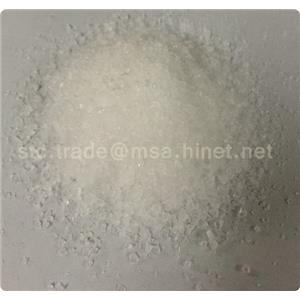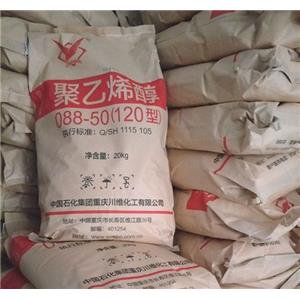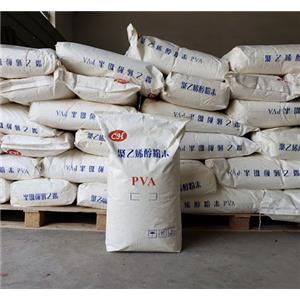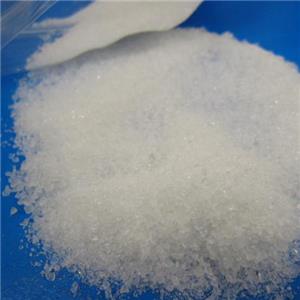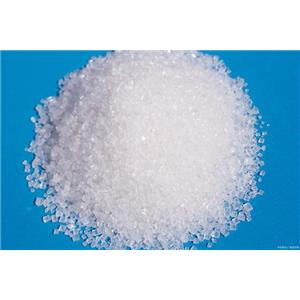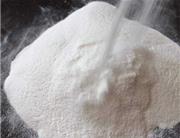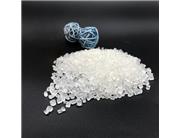| Product Name | Polyvinyl Alcohol/PVA |
| CAS No | |
| EC-No | |
| Min. Order | 0.01T |
| Purity | 98% |
| Supply Ability | 20T |
| Release date | 2024/04/24 |
Polyvinyl alcohol (PVA) is a water-soluble resin made from vinyl acetate by polymerization and alcoholysis. It has unique characteristics of strong adhesion, toughness, smoothness, oil resistance, solvent resistance, gas resistance, wear resistance, colloidal protection, etc., and can be made water resistance by special treatment. Widely used in textile industry, construction industry, papermaking, packaging industry, wood processing, makeup, medicine, agriculture, printing, polymer chemical industry, ceramics, steel, electronics, electrolysis, electroplating and other industries. PVA can also be drawn into silk, is one of the best synthetic fibers. PVA17-88, 20-88, 24-88 powder (80 mesh, 120 mesh, 160 mesh) are particularly suitable for building mortar additives, they improve the flexibility of mortar, water retention, improve mortar viscosity. In addition, they reduce the friction of the mortar, thereby increasing the efficiency and quality of the work. (Prevent cracking and falling off of the plaster layer, increase adhesion strength and smoothness.) PVA17-88, 20-88, 24-88, 80-mesh powder can be directly dissolved in cold water, 120 mesh, 160 mesh and other powder dry mix evenly, can be quickly dissolved in cold water, improve the characteristics of building materials.
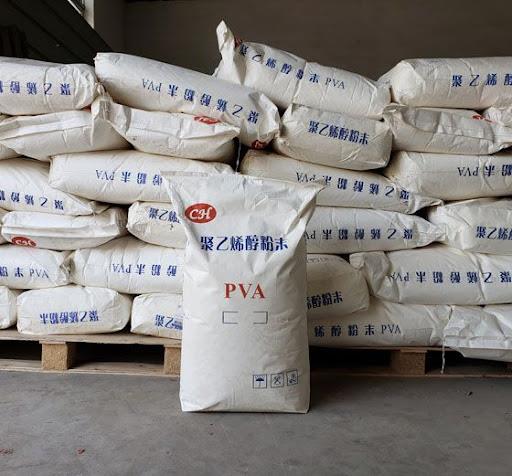
Product properties
1. Physical properties: Appearance: white powder, odorless, tasteless, with fluidity. Solubility: Polyvinyl alcohol powder (PVA) 17-88, 20-88, 24-88 are partial alcoholysis PVA, can be quickly dissolved in room temperature water. Thermal stability: polyvinyl alcohol softens when heated, has no significant change below 40℃, will gradually color when heated for a long time at 160℃, decomposition occurs above 220℃, producing water, acetic acid, acetaldehyde and butenal. Chemical resistance: almost unaffected by weak acids, alkalis or organic solvents, oil resistance is very high. Storage stability: PVA is a low viscosity polymer, and its aqueous solution is stable at room temperature. PVA aqueous solution does not deteriorate during storage. Film formation: Due to the high adhesion between PVA molecules, PVA is easy to form a film, the formed film is colorless and transparent, has good mechanical strength, the surface is smooth and not sticky, and the solubility is good. PVA film has good light transmittance, high moisture transmittance, no electricity, no dust suction and good printability.
2. Chemical properties: PVA can be regarded as a linear polymer with secondary hydroxyl group. The hydroxyl group in the PVA molecule has high activity and can carry out typical chemical reactions of low alcohols, such as esterification, etherification, acetalization, etc., and can also react with many inorganic compounds or organic compounds. Note: The difference in PVA properties is mainly determined by its degree of polymerization and alcoholysis.
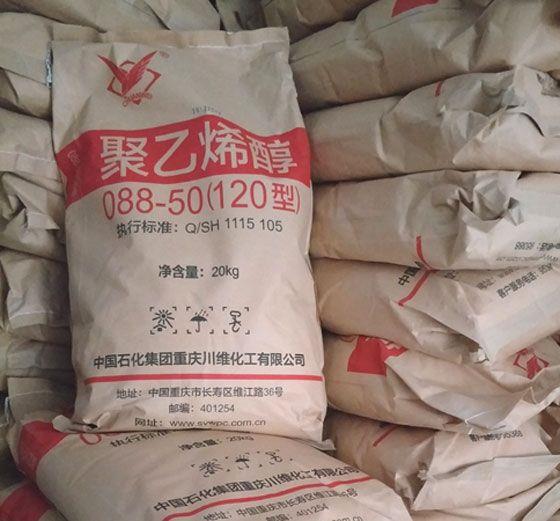
Product Application
1. Gray calcium putty: A very small amount of addition can significantly improve the cohesion strength, adhesion, water resistance of the putty coating, reduce the amount of gray calcium powder, and significantly improve the phenomenon of delamination and scarring during grinding. Improve the surface fineness of the putty after polishing.
2. In the cement-based external wall putty: improve the cement setting speed,
improve the early strength of the putty, good film formation, excellent durability, and thin batch is not easy to powder.
3. Polishing putty (porcelain imitation paint) : it can improve the surface film formation, so that the coating surface is more dense, high hardness, bright, more scrub resistant. One ton plus one kilogram can get obvious results.
4. Interior wall neutral putty: Add 6 kilograms of polyvinyl alcohol powder to a ton of heavy calcium, and the right amount of cellulose (hydroxypropyl, carboxymethyl can be) to obtain the ordinary putty powder of far better quality than starch and 821. The hardness of this putty is between gray calcium-based putty and starch putty, and has excellent batch scratch property. With gray calcium putty and starch putty is far less than the adhesion, flexibility, grinding fineness, durability, if combined with gypsum powder and retarding technology can get better home decoration putty powder, this putty powder has long service life, good decorative effect, will become the future development direction of putty industry.
5. In the instant glue powder, it is the main binder, with an appropriate amount of hydroxypropyl methyl cellulose, and supplemented by an appropriate amount of thickening complex additives, that is, you can get convenient environmental protection, high bonding strength, both can be mixed with cement gypsum to do wet wall leveling, but also a separate batch of double fly powder without powder high-performance glue powder.
6. In dry mortar, PVA powder has good film-making property, and it is used with cellulose ether water retaining agent, which can improve the flexibility and water retention of various cement mortar and gypsum building materials, improve the bond strength of mortar, and effectively prevent spalling, cracking and hollow drum. Other uses: thin-layer adhesive, flexible adhesive, mineral ash paste, cement additive, PVC latex, rewet adhesive, business paste, cosmetics, screen plate sensitive film, cement additive, coated paper coating agent, zinc plate printing sensitive film, long fiber yarn sizing agent, rewet adhesive PVC latex, oil well cement additive.
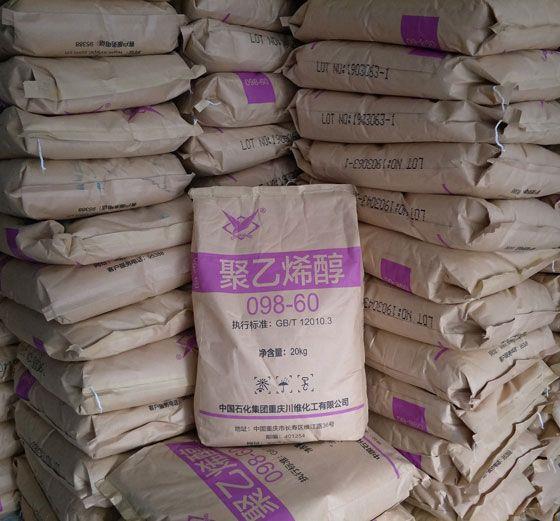
Packing
1kg/aluminium foil bag, with two plastic bags inside.
25kg/fiber drum, with two plastic bags inside.
≤50kg, Express delivery recommended, usually called as DDU service;
≤500kg,Air shipping recommended, usually called as CIF service;
>500kg, sea shipping recommended, usually called as FOB, CFR, or CIF service;
For high value products, please select air shipping and express delivery for safety.
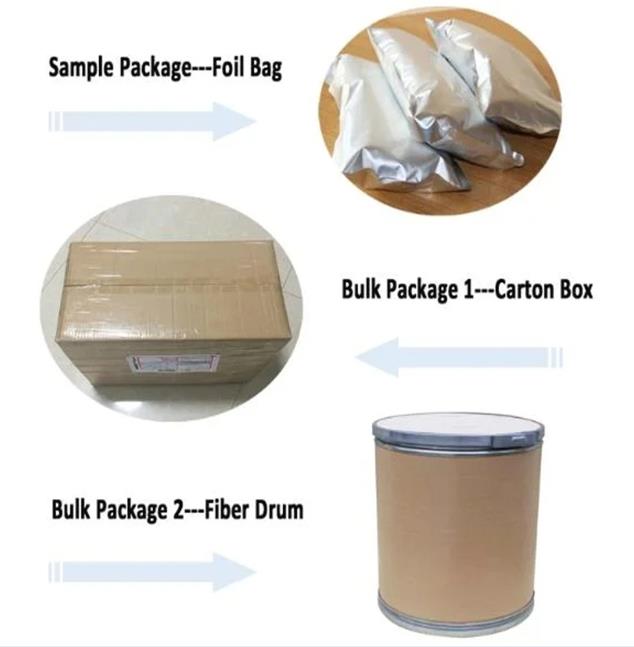
Shipping&payment


Company Profile

Yujiang Chemical(Shandong) Co., Ltd. We are located in Shandongwith convenient transportation access. We are a professionalmanufacturer and trader that is concerned with the research.development and production of chemical products. We committedto providing you with high-quality products and services. We alwaysimplement the concept of customer value creation, for customerstailored products, to meet the needs of different customers, andcontinuously provide customers with solutions and technical problemsFurther exploration and innovation, and excellence.Welcome andook forward to customers from all of the world to contact us forcreate a bright future with us together.
Company Profile Introduction
Our company offers variety of products ,such as: Lithium Hydroxide,Lithium Carbonate,Methyl Acetate,Methanol,Methyl Tert-Butyl Ether.which can meet your multifarious demands. We adhere to the management principles of "quality first, customer first and credit-based" since the establishment of the company and always do our best to satisfy potential needs of our customers. Our company is sincerely willing to cooperate with enterprises from all over the world in order to realize a win-win situation since the trend of economic globalization has developed with anirresistible force. We specialize chemicals products have covered most regions of China and also have been exported to foreign countries and regions such as Europe, USA and Southeast Asia. For many years, the comany has taken advantage of its merits to develop high-tech well-known products. Our capacity and efficiency have been improved rapidly. Our company was named as"National Key High-tech Enterprise" by National Ministry of Science and Technology in 2003. The company has passed IS9001: 2008 certificate of CQC.
